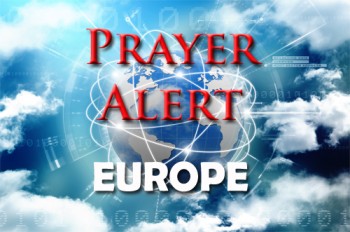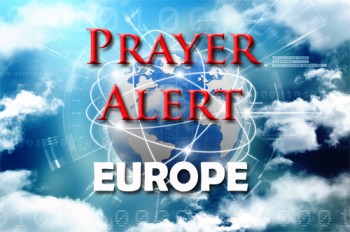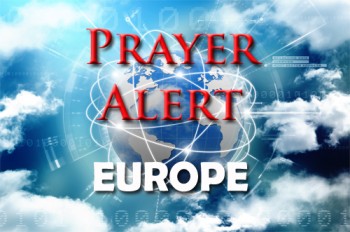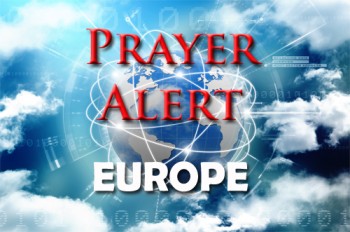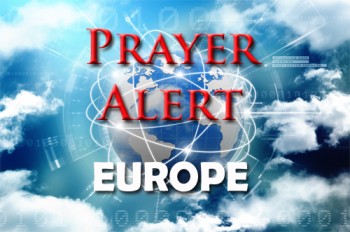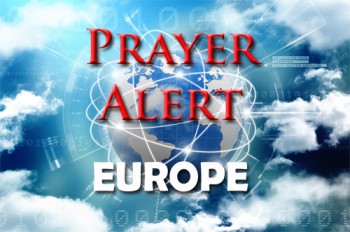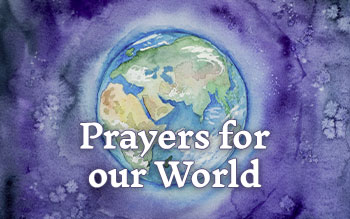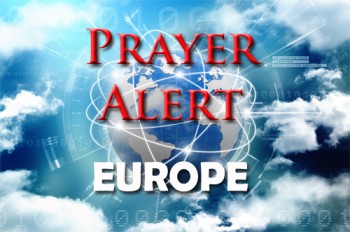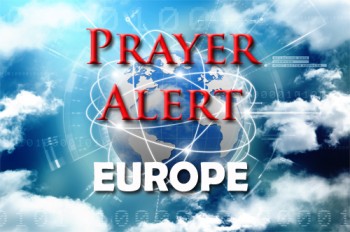Displaying items by tag: Europe
Migrant boy found dead on Calais beach
Two teenagers unsuccessfully tried to cross the Channel in a three-foot dinghy using shovels as oars. They wanted to cross by themselves, bypassing people smugglers who charge high prices. One was a 16-year-old Sudanese boy who was found dead on the beach near the former ‘Jungle’ camp; his friend was found on the same beach suffering from hypothermia. Detention Action described the death as horrifying but wholly expected, saying, ‘We have repeatedly warned Priti Patel it was only a matter of time before her toxic policy to deny safe and legal routes to the UK would cost lives. This death lies firmly at her door. She should consider her position.’ Clare Moseley, founder of Care4Calais, said the boy's death demonstrates the ‘total failure of our government’ to help children in such desperate straits.
Russia: persecution of missionaries
Individuals of almost every religious affiliation continue to face prosecution under Russia’s ‘anti-missionary legislation’ for exercising their right to freedom of religion and belief. Despite a 2018 constitutional court decision which offered some clarification of what ‘missionary activity’ means, police and prosecutors continue to initiate cases to punish a wide range of activities, from advertising events online to holding ordinary worship services for fellow believers. 142 prosecutions reached courts in the last six months.
Russia: vaccine approved for use
Vladimir Putin said a vaccine for Covid-19 has been given regulatory approval after less than two months’ testing on humans. It has passed all the required checks, and he added that his daughter had already been given it. Officials plan to start mass vaccination in October. However experts have concerns about the speed of Russia's work, suggesting that researchers might be cutting corners. Amid fears that safety could be compromised, WHO has urged Russia to follow international guidelines for producing a vaccine. The vaccine is not currently among the WHO's list of six which have reached phase three clinical trials, involving more widespread testing in humans. Globally over 100 vaccines are in early development. Some are being tested on people in clinical trials. Most experts think that a vaccine will not become widely available until mid-2021. Russia's vaccine data cannot be verified.
Albania: ‘take more care of people’
Monsignor George Frendo, chair of Albania’s interfaith council, has appealed for the country to take more care of its people’s health. ‘Have we reconciled with the coronavirus? Or are we afraid that more restrictions will create problems for the country’s economy? And what should be the priority, the economy or the health of the people?’ He quoted Father Arturo Sosa, the general superior of the Jesuits, who has commented that coronavirus is a threat not only to human life and affairs, but also to democracy. Msgr Frendo added, ‘Maybe someone can accuse me of interfering in politics? Jesus has approached and healed many sick people. Unfortunately I do not have this ability! But it is my duty to speak for the protection of the health of our people.’
Germany: attack on anti-Semitism commissioner
The government-appointed commissioner to combat anti-Semitism, Felix Klein, was criticised in an open letter to Angela Merkel from sixty academics, authors and artists in Germany and Israel. They warned the Chancellor concerning ‘provocative, factually and legally unsustainable use of the term “anti-Semitism”’, saying that freedom of speech is endangered by criticism of Israel’s policies. However many believe Mr Klein has taken his responsibilities seriously with courage and commitment, tirelessly bringing problems to light and demanding concrete action (anti-Semitism in schools and on the Internet, preventing the growth of extremism, and much more). He is the contact person for Jewish groups and social organisations in the fight against anti-Semitism nationally, at federal state level, and in civil society in general, plus promoting awareness of the latest forms of anti-Semitism. He has received support from many different Jewish organisations.
UK citizens relocate after Brexit vote
Research has found that the number of British nationals emigrating to other EU countries has risen by 30% since the Brexit referendum, with half making their decision to leave in the first three months after the vote. Approximately 380,000 British nationals already live in Spain, where the biggest jump in migration occurred. Germany has seen 31,600 Britons naturalising there since the referendum. These increases in numbers are of a magnitude that you would expect when a country is hit by a major economic or political crisis. Half chose to leave the UK quickly, possibly indicating an increased level of impulsiveness, spontaneity, and corresponding risk-taking.
Covid-19 Pandemic Prayer Update
A prayer report looking at Covid-19 Hot Spots, Flattening the Curve, and Hopes for a Vaccine with links to resources
As of 30th July, the total global figure for people infected by Covid-19 stands at 16.8 million according to the World Health Organisation. In addition, the current death continues to rise above 660,000.
Covid-19 hot spots
The US remains the worst affected country globally in terms of total numbers of cases and deaths with nearly 4.6 million cases and over 150,000 deaths. A record 78,000 cases were reported in just one day on 24th July with 21 states labelled as ‘red zones’ categorised as by their case rate of more than 100 per 100,000 people in the past week.
Brazil has opened its air borders to tourists despite no sign of new cases decreasing and registering new record case and death numbers in recent days. One particular high-profile case in the country was that of the Brazilian President Jair Bolsonaro, a long-term sceptic of the severity of the virus. He has since recovered from illness.
South America as a whole now has more confirmed cases than the US and Canada put together. With poor levels of testing taking place, these case numbers are likely far from the truth. A study in Lima, Peru estimated that a quarter of people in the city may be infected, leading to the suggestion that a similar trend may be taking place in other South American cities. Brazil and Peru, along with Colombia, Argentina, and Mexico, are among the top ten countries in the world for new cases each day.
India has become the third most infected country with 1.6 million confirmed cases. However, the true number is likely much higher since testing is not easily available for all; especially for those living in slums where the likelihood of transmission is increased due to close-quarters living conditions and shared sanitation facilities.
Large areas of Europe have managed to dramatically reduce the prevalence of coronavirus, although they have not managed to completely eradicate it. Russia still has the most new cases and deaths daily by far, followed by Spain and France where there have been recent regional outbreaks. Romania and Ukraine have seen continued increases in case numbers after failing to significantly minimise the virus after its first peak.
It is not well known how severe the situation is in Africa since there is a major lack in testing. The International Rescue Committee have said that they fear the continent is “fighting the epidemic in the dark” with limited data to work from hampering their response to the pandemic. Other countries around the world struggling to contain the virus include Indonesia, South Africa, and Israel, where the numbers of new cases and deaths are rising.
Has the curve flattened?
In some countries around the world where good social distancing has been practised, masks worn where necessary, efficient testing and quarantining has taken place, and test-and-trace systems have been implemented, the rate of infection has been shown to fall and in some places be reduced to 0. This has been fully enacted by small countries and island nations and has seen positive results from larger countries such as New Zealand, Vietnam, Taiwan, and Iceland where the virus was once prominent.
In other countries, there has been impatience during lockdown, not waiting long enough for case rates to fall before reopening. This prevents a reduced rate of transmission, which doesn’t work towards the eradication of the virus. Through further restlessness and more easing of lockdown restrictions, the rate of transmission has increased again producing a so-called ‘second spike’ as shown by the recent dramatic increase in cases in the US or Israel.
The efforts that have been put in place by countries all over the world have reduced the impacts of the virus, though. Without the measures such as social distancing designed to reduce transmission, the new numbers of cases would likely not have dropped, and the death toll would have been much higher by now.
Vaccine update
Over 165 vaccines are currently being developed by teams all over the world in the race to find a solution to the pandemic. 27 of these are currently in human trials to prove that they work as intended and are safe for wide-spread use.
A vaccine produced by the University of Oxford has been shown to trigger an immune response creating neutralising antibodies and T-cells in the recipient after a single dose in 90% of participants, although not without possible side-effects such as fever and headaches. Larger trials will take place across several countries to ensure the vaccine is safe and then “challenge trials” will be performed where willing participants are deliberately infected with coronavirus to observe the vaccine’s response.
Let us continue to declare that the novel coronavirus is defeated by the blood of Jesus.
We pray for divine intervention and for God's name to be glorified even as each nation and government tries its best to flatten the curve and finally arrest this epidemic.
We release wisdom, skill, and integrity upon our leaders.
We pray for protection, wisdom and strength, for those working to bring treatment and comfort to the sick and their families.
We pray special grace and help for the vulnerable population and nations. We pray for refugees and displaced peoples. We pray against domestic violence and other crimes that have become rampant during lockdowns.
We pray for a safe, effective, and affordable vaccine to be released soonest but without including aborted baby cells in its creation, neglecting proper testing protocols, and without including any digital ID tracing (“health passport”) which could bring about totalitarian control.
We continue to release faith, hope, and love over the peoples of the world. May the Church seize this opportune time to manifest Jesus our Lord and Savior to those who are seeking answers and peace.
Pray: Lord God, the One who has Almighty power, we agree according to your promise in Matthew 18:18-20 that this virus will be stopped in its tracks. That the medical researchers will get a download from Heaven on how to quickly develop a vaccine to counteract COVID-19 and a cure for those who have become infected.
We also agree in prayer, asking that the Body of Christ worldwide will rise up in love and boldness, trusting in your blood to cover and protect us and throwing off fear, so that we can be available to serve, bless, and bear witness to those around us who are terrified and depressed at being infected.
Let us seize this unprecedented opportunity to make you known to those without hope in Christ!
Thank you for your promise that surely, you will be with us "always, even to the very end of the age” so that we can carry on with the mission you have given us for our world (Matthew 28:20).
|
Join in Online Prayers: 247 Prayer Coronavirus Prayer Room God and the Pandemic – Tom Wright 19 Things to Do in response to Coronavirus Prophecy Today UK’s Responses to Coronavirus PrayerCast Video and Prayer BriefingCSM Nigeria Article |
Lausanne Resources WW11 Veteran Gets 180k Praying On a lighter note… 50 countries affected by Covid 19 sing Amazing Grace in this video Reporting from John Hopkins University: https://coronavirus.jhu.edu/data/mortality Further data on Europe and the world: https://www.ecdc.europa.eu/en/geographical-distribution-2019-ncov-cases |
Russia: anti-Putin protests
Sergei Furgal, governor of the far eastern city of Khabarovsk, was interrogated and ordered to be held in jail for two months. Thousands of demonstrators have been gathering in the streets for three weekends to show their anger over the Kremlin's replacement of this popular regional governor. The sustained demonstrations represent a growing challenge for Putin, who is viewed as having a role in sparking the regional crisis after he fired Furgal. Many have called for his resignation. Others chanted ‘Disgrace’ and denounced the acting governor appointed by Putin. According to protest leaders and independent journalists, over 50,000 people demonstrated in Khabarovsk, which would make it the largest anti-government protest there since the collapse of the Soviet Union in 1991. Protesters see criminal charges raised against Furgal before his dismissal as unsubstantiated. They are demanding he stand trial at home instead of in Moscow, where he has been transferred.
Brexit deadlock
Brexit talks have stalled over a series of key issues; neither the UK and EU has shown any willingness to make concessions. The future of British fisheries has remained one bone of contention since the start of the talks, as the EU continues to demand access to UK waters at the end of the transition period. Tim Bale, the deputy-director of the UK in a Changing Europe think tank, suggested Boris Johnson is unlikely to give in to EU demands because of their ‘symbolic’ importance. It’s all about the slogan that won the referendum, ‘Take back control’.
Post-pandemic church: canopy of prayer over Europe
Some churches have faced the lockdown challenge by simply meeting the needs of their existing congregations. This could be a missed opportunity to discover what it might look like to ‘go and make disciples’ in the 21st century and beyond. Let us not forget that many revivals started outside the church and were later embraced by the church. This pandemic has introduced the many of the older generation to Skype, FaceTime and Zoom, which has helped those who live alone at home or in care to feel less isolated. The church in this new season still has a fundamental Christian mission to build relationships, to worship together, pray together and serve together. Each church must seek God to discover what He is asking of them. God is giving His church an opportunity electronically to ‘throw out a new net - where there are many fish’, and we can give thanks for the increase in online views of church services during lockdown.
